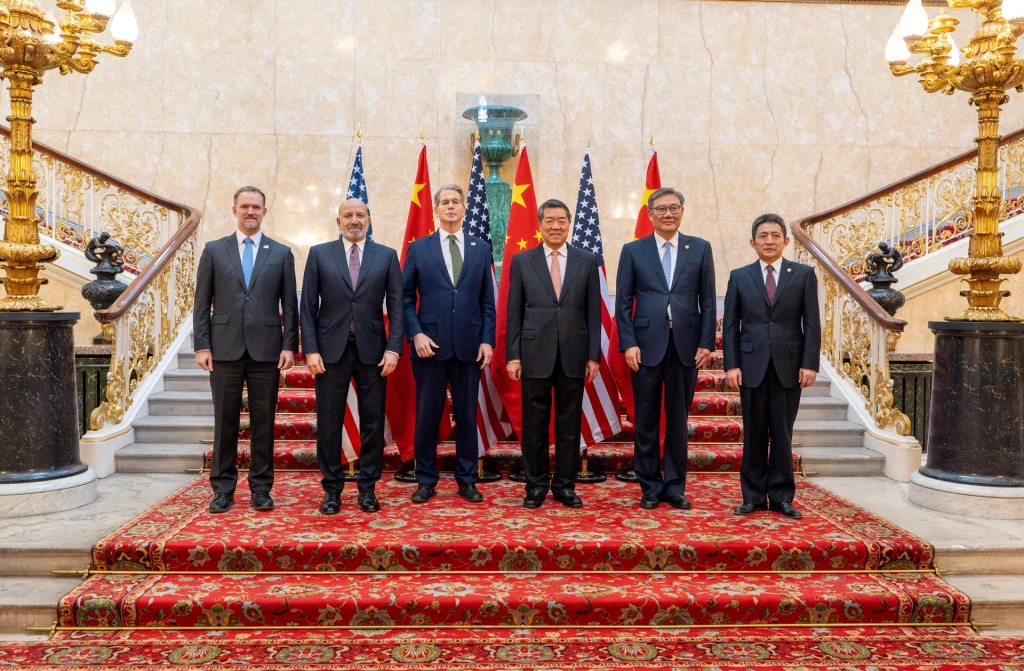THE US and China de-escalated trade tensions, agreeing to a preliminary deal on how to implement the consensus the two sides reached in Geneva, negotiators for both sides said.
While the full details of their accord weren’t immediately available, US negotiators said they “absolutely expect” that issues around shipments of rare earth minerals and magnets will be resolved with the framework implementation.
“We have reached a framework to implement the Geneva consensus,” US Commerce Secretary Howard Lutnick told reporters in London.
The US and Chinese delegations will now take the proposal back to their respective leaders, said China’s chief trade negotiator Li Chenggang, after two days of discussions that spanned nearly 20 hours in a Georgian-era mansion near Buckingham Palace.
“Once the presidents approve it, we will then seek to implement it,” Lutnick added.
US Trade Representative Jamieson Greer said there were no other meetings scheduled, but added that the American and Chinese sides talk frequently and are able to do so whenever they need.
BT in your inbox

Start and end each day with the latest news stories and analyses delivered straight to your inbox.
The talks in London came at the urging of the Trump administration to cement a pledge the Chinese government made to ease shipments of rare earths during last month’s trade talks in Geneva, which yielded a tariff truce.
The disagreement over critical mineral exports reignited open economic conflict between the US and China and raised the prospect their nascent deal could collapse, which would pose a fresh threat for the world economy.
“We do absolutely expect that the topic of rare Earth minerals and magnets with respect to the United States of America will be resolved in this framework implementation,” Lutnick said.
“Also, there were a number of measures the United States of America put on when those rare earths were not coming,” Lutnick added. “You should expect those to come off – sort of, as President Trump said, in a balanced way. When they approve the licenses, then you should expect that our export implementation will come down as well.”
“When it comes to export controls and all those different things,” Greer said, “in eight years of negotiating with the Chinese, I’ve never had a meeting where they didn’t want to talk about export controls.” BLOOMBERG


